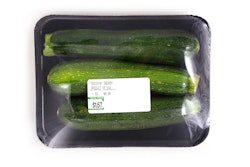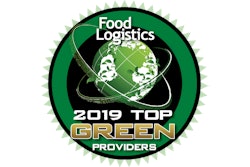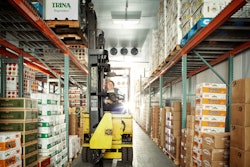In my home state of California, a new law prohibits full-service restaurants from automatically giving out single-use plastic straws unless the patron specifically requests one. In L.A. it’s even stricter. As of April 22 (Earth Day) a new ordinance requires all food and beverage facilities, including drive-throughs and foods trucks, to phase out single-use plastic straws by October 1.
In my home state of California, a new law prohibits full-service restaurants from automatically giving out single-use plastic straws unless the patron specifically requests one. In L.A. it’s even stricter. As of April 22 (Earth Day) a new ordinance requires all food and beverage facilities, including drive-throughs and foods trucks, to phase out single-use plastic straws by October 1.
I’m all for reducing plastic in the food/beverage supply chain. The benefits are huge; the effort is small, at least at the consumer level.
In this month’s cover story, longtime freelancer Mary Shacklett talked with Jenny Ahlen, director, supply chain, EDF+Business, about sustainability in the supply chain. One topic that came up was “circularity,” and Jenny cited Loop as a company that is piloting this concept.
The easiest way to describe it is the “milkman” model. Customers shop for brand name products on Loop’s site (loopstore.com). The products are shipped in specially designed containers and delivered to customers’ homes in a Loop Tote. Once the product is used up, the containers go back in the Loop Tote and are picked up from the customer and sent to a Loop facility where they are hygienically cleaned and ready to be re-used.
Tropicana, Hellmann’s, Teva Deli, Nature’s Path Organic and Haagen-Dazs are some of the food/beverage brands that are partnering with Loop.
Grocers are getting in on the no plastic gig, too. Brooklyn’s Precycle grocery store claims to be the first store in New York selling package-free produce, bulk food and home goods.
For bulk food, customers can either purchase a reusable container or bring their own. If they bring their own, Precycle will weigh the empty container first to determine it’s tare weight (just like an intermodal container), then deduct the tare weight from the total weight so customers are only charged for the actual weight of the bulk food. Brilliant.
I’m proud to be associated with an industry that champions environmental stewardship and sustainability. From farmers and fishermen who have deep connections to the land and oceans, to those at the other end of the food supply chain who are working to eliminate food waste and keep food out of the landfill, and so many in between who are likewise supporting the sustainability cause—keep up the good work.
Enjoy the read.


















